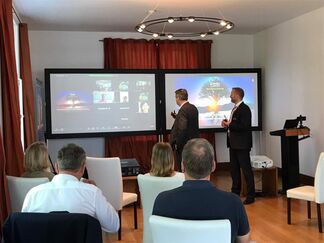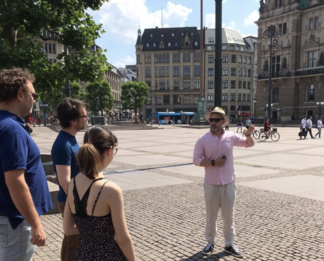Director’s thoughts – Calendar Week 27
COVID-19 and our style of leadership
A recent poll undertaken by international recruitment agencies revealed that 78% of those asked believe that there will be a change in sought-after leadership skills post-COVID. The poll found that the top leadership qualities included the ability to adapt fast, resilience, a high capacity for EQ, strategic mindedness, the ability to inspire, and being a strong communicator. It is not surprising to see that therefore the top-most in-demand job functions post-COVID are located within technology-related departments, logistics, HR and health and safety.
Post-COVID we expect to see increased challenges for recovery mainly to achieve organizational financial stability, transformation – ie. the ability to adapt organizational structures to whatever the ‘new normal’ will be, talent management and engagement – distance working has shown its challenges and it will need to be addressed properly, as well as building confidence – among staff and teams and also clients and other stakeholders.

Leadership will thus experience an increased demand on not just managing the road ahead but to actually lead with a well-communicated vision, integrity and authenticity.
How will leaders enable themselves to adapt to such demands? Haven’t we experienced crises in the past that needed to be overcome? Has something changed in the way we are required to lead?
It can be argued that the currently active generation of leaders has not yet had first-hand experience with social distancing and being active almost fully online. Despite the fact, that we are technologically much more advanced today than, say, 5 years ago. We have seen that informal communication has needed to adapt to tackle with formal communication tools (the chat by the watercooler or over a coffee disappeared, in their stead we found ourselves having to make actual appointments for zoom calls, requiring new levels of focus and concentration!).
This is a fundamental change in the way we communicate socially. Online communication, the good ways, the bad and the ugly, was all around us and we engaged with it on a regular basis through the internet and social media. However the need to utilize such communication channels as a main route to get a message across has certainly challenged most of us. New levels of self-discipline and self-management are required to create enough space to think, to work and to recover in appropriate and needed doses. Tolerance towards those that struggle with this new way of engagement, those that saw their jobs disappear, through furloughing schemes or otherwise, the ones that simply were challenged by this sudden transition, is needed and will remain one of the highest valued characteristics of leadership in the future.
My own personal tips to lead past the upcoming bumps in the road:
- Write down for yourself your immediate priorities, professionally and privately
- Create a vision – where is it that you want to lead your organization towards?
- Be realistic – what is it that you absolutely have to do in order to save your organization, without compromising on your values?
- Build a plan – and stick to it! Of course, if your plan steers you towards a wall you will need to adapt but maintain course with integrity and self-belief
- Have a timeline – for how long will you be performing in ‘exceptional mode’? You cannot do it forever, so account for your resources figure out by when you want to have a ‘normalised’ situation again
- Give yourself (and others) some slack – we all are trying our best, mistakes are bound to happen. If you make one, don’t sit on it but pick yourself up and make it better next time
- Last, but not least, breathe and focus. It requires discipline to work through uncertain times. This can be exhausting, so build in conscious moments during the day, where you make time to reflect, on yourself, on your team, on your organization, on what is important to you

At Henley Business School we have carried out a considerable body of research over the past years and some of it you might find inspiring:
- Heads together and row
- The Leading Edge podcast series
Simply go to Henley.ac.uk and you will find resources to read and give you ideas.
Also, please remember, you are not alone. As alumni you have the possibility to book – free of charge – coaching sessions to discuss what is keeping you up at night and find someone to talk to. Of course, and our alumni know this, all Henley programmes come with what we consider our DNA: a solid foundation of personal development. Be it as part of the MBA, or the coaching programmes, or even the DBA, Henley always includes a personal development component that helps make you the leader you want to be (and maybe also need to be) with integrity and authenticity. Our team is there to support and help our community, so please do get in touch anytime.
We hope that reading this week’s director’s thoughts was inspiring and – as always – we appreciate feedback and your views. We do look forward to hearing from you.
With this in mind, we wish you a great new week ahead
Chris Raudonat
Director, Henley Business School Germany GmbH


